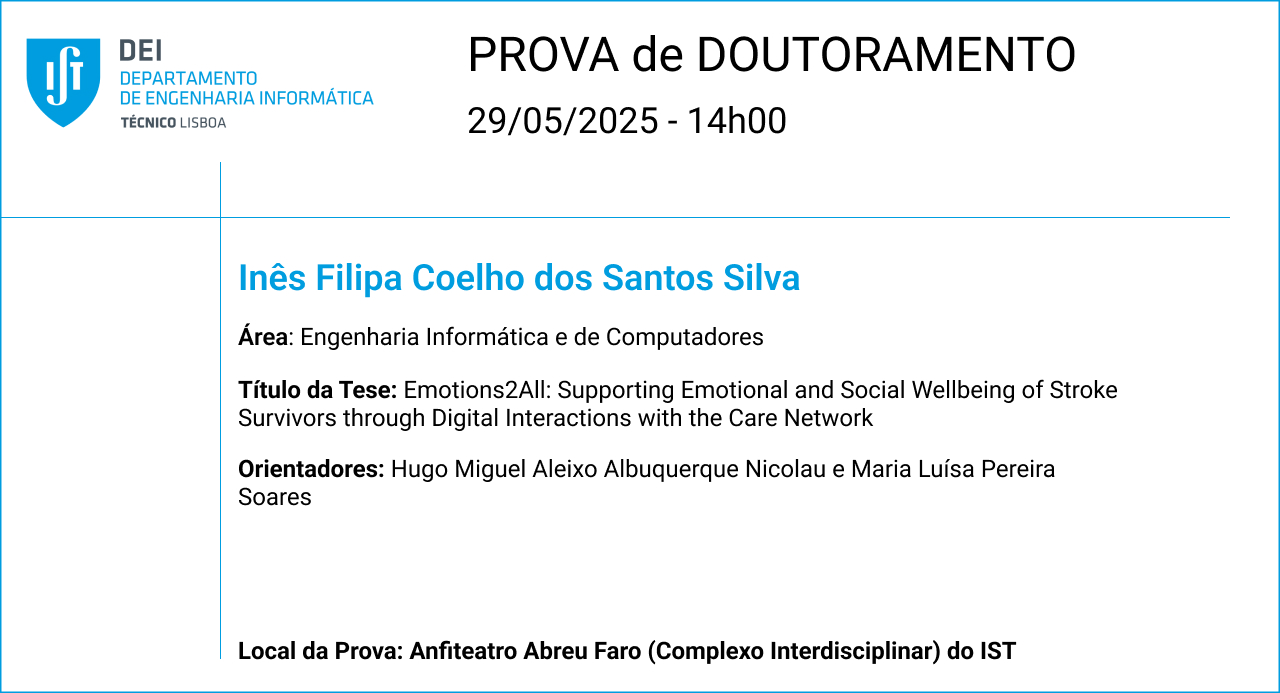Prova de Doutoramento da aluna Inês Filipa Coelho dos Santos Silva

Área: Engenharia Informática e de Computadores
Título da Tese: Emotions2All: Supporting Emotional and Social Wellbeing of Stroke Survivors through Digital Interactions with the Care Network
Local da Prova: Anfiteatro Abreu Faro (Complexo Interdisciplinar) do IST
Data: 29/05/2025
Hora: 14h00
Abstract: Stroke survivors experience a wide range of sequelae that significantly impact their lives, as well as the lives of their families and social relations. These changes affect relationships, daily activities, professional life, habits, and routines, often leading to emotional distress for all stakeholders involved. Emotional and social wellbeing plays a crucial role in stroke survivors' Quality of Life (QoL) and recovery. However, existing research in Human-Computer Interaction (HCI) has predominantly focused on physical and cognitive rehabilitation, neglecting the emotional and social aspects of stroke recovery. Our work proposes the use of the approach \textit{Wellbeing-as-Interaction} to address the emotional and social wellbeing of stroke survivors and their caregivers/families/peers. \textit{Wellbeing-as-Interaction} explores how technology can support emotional and social wellbeing, through technology to promote self-awareness of emotional state and communication. This approach combines constructivist perspectives in \acrshort{HCI} and the sociology of health to understand individuals' emotional wellbeing within social contexts and interactions. The main goal is to investigate how interactive and social experiences among stakeholders can influence emotional and social wellbeing. By exploring this approach, this work aims to understand users' comfort in sharing their emotional state, the impact of awareness of their partner's/peers' emotional wellbeing, and the influence of discussions and reflections on emotional wellbeing in a social context. Our research project contributes to the field by exploring the influence of the \textit{Wellbeing-as-Interaction} approach on emotional wellbeing, relationships, and communication between stroke survivors and support care networks. Also, this research aims to address the gap in emotional support technologies specifically tailored for stroke survivors and provide valuable insights into designing interactive and socially oriented solutions for emotional and social wellbeing.
